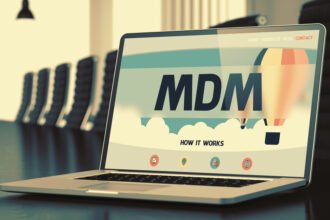There are numerous definitions for “master data” ranging from one sentence to a few paragraphs. This is perhaps the most straightforward one I’ve come across:
Master data is the core data that is essential to operations in a specific business or business unit. – via Whatis.com
A clear and simple definition, yet a lot of companies often struggle to adhere to it when identifying and qualifying master data for their organizations.
Why do you think this is?
There are numerous definitions for “master data” ranging from one sentence to a few paragraphs. This is perhaps the most straightforward one I’ve come across:
Master data is the core data that is essential to operations in a specific business or business unit. – via Whatis.com
A clear and simple definition, yet a lot of companies often struggle to adhere to it when identifying and qualifying master data for their organizations.
Why do you think this is?
Although data is often looked at on a transactional basis, master data typically makes up a large a percentage of the data elements in any given transaction. Common examples of master data include:
- Customer data (name, contact details, DOB, customer classification)
- Locality data (physical address, postal address, geographical data)
- Product data (item number, bill of materials, product codes)
- Employee data (employee number, role, placement in organisational structure)
- Partner data (partner name, classification)
It is not unusual for this same data to be held in dozens or even hundreds of applications across a large organization, and may be difficult to isolate and collect. Much of the data has been held in legacy systems for years and may be held in a fashion where data is poorly integrated and at low levels of quality. Many organizations have poorly implemented Data Governance processes to handle changes in this data over time.
MIKE2.0 offers an open source solution for managing master data that outlines many of the issues organizations have with identifying it.
How do you define and qualify your master data?






